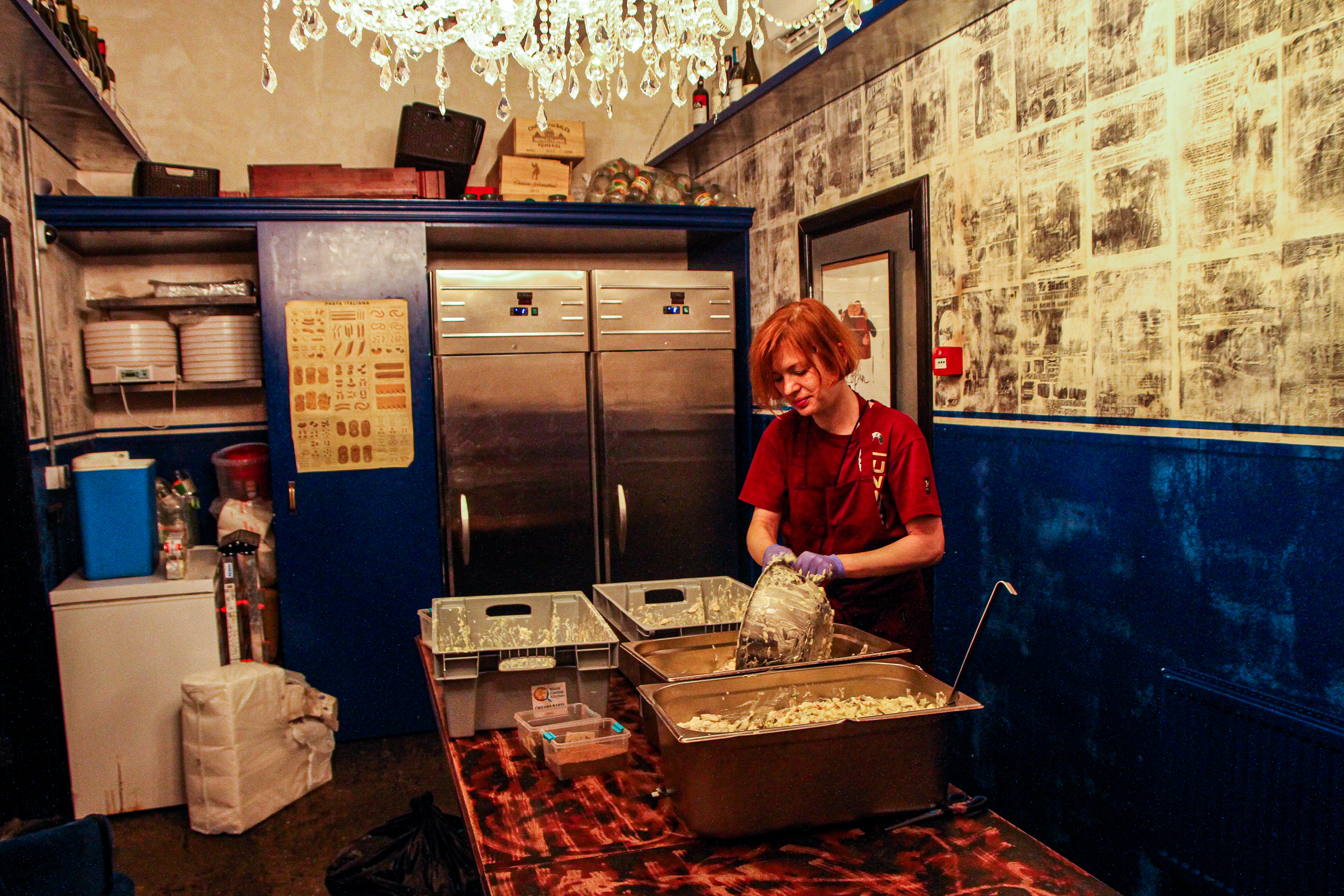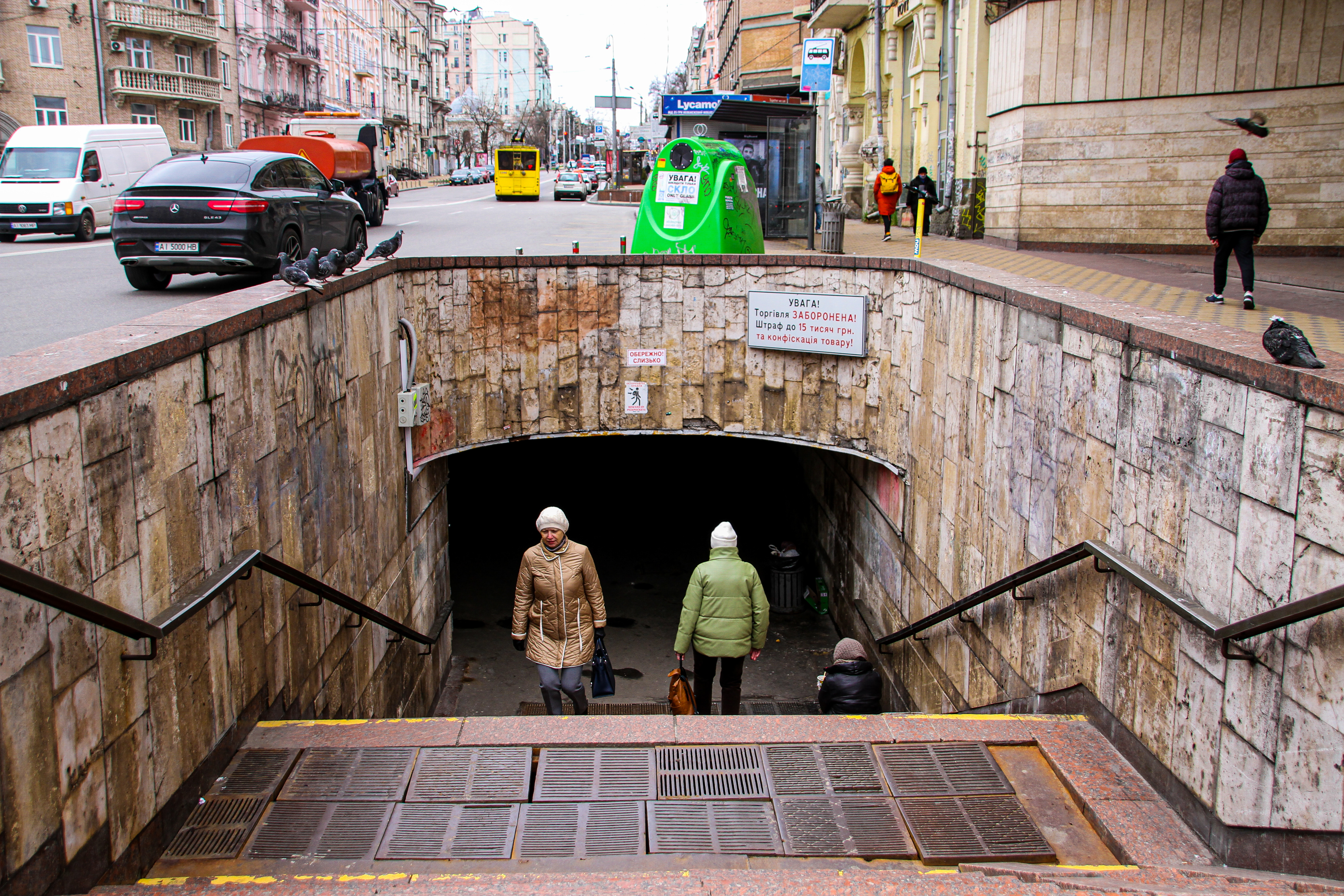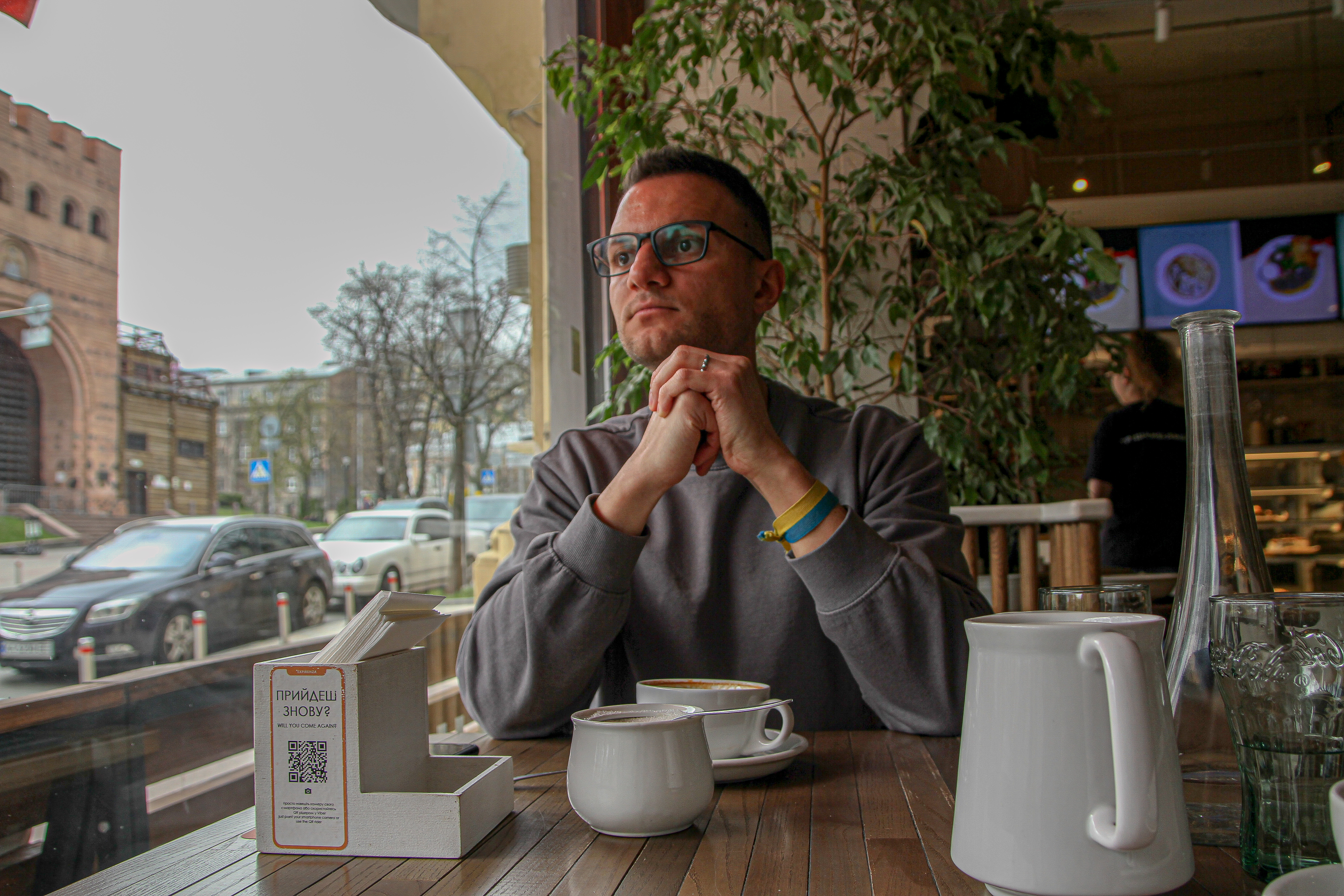
Kyiv, Ukraine – After two months of war, Ukraine’s capital is treading carefully towards a new normal.
Kyiv was Vladimir Putin’s prized target when he ordered a full-scale invasion of Ukraine on February 24, in what he termed a “special military operation”.
But after failing to seize the capital, which sits in the country’s west, the Russian military this month refocused efforts on seizing the entirety of Ukraine’s Donbas region in the east, a move that is allowing Kyiv to gradually come back to life.
Walking through Kyiv today, the city is far from its usual bustling self. But it is a dramatic shift from just a few weeks ago, when the streets were almost deserted.
While air raid sirens are an everyday occurrence and the threat of attacks remains, businesses are reopening and people are doing normal things – such as buying a coffee or going to church.
Café Khlebniy, on Velyka Vasylkivska Street, reopened on April 16 after having been closed for weeks since the war began, and is serving pastries and coffee once again.
Andriy, an employee, said it was “cool” to witness people returning to Kyiv.
“There are more and more guests every day. It is gratifying that most people are returning to normal,” he told Al Jazeera.

A short walk down the street at St Nicholas Roman Catholic Church, residents flock to attend weekly Sunday service.
The faithful sit tightly together in pews with boxes of humanitarian supplies crammed beside them, a scene which appears symbolic. People are looking for answers but prepared to live with the war in their country.
Katia, however, who owns Wine Love, a wine bar hidden between bulky grey Soviet-era buildings and shopping plazas in downtown Kyiv, remains in war mode.
As the war began, she quickly transitioned her bar into a restaurant, providing meals for city residents.
“The last day we worked was February 23. For two days, we were in shock. But after, I started to cook for people who need the food,” she said.
With a team of 20 volunteers and a partnership with World Central Kitchen, a Washington-based organisation, she prepares meals including borscht, a beetroot-based soup staple in Ukraine, for about 900 locals a day.
“We will not open the [wine bar] until the end of the war. Every day, people in different parts of Kyiv need food. People from the east [of Ukraine] come every day, and people need food,” she insisted.

Meanwhile, there are signs that diplomatic offices are returning.
On Friday, the United Kingdom announced it would soon reopen its Kyiv embassy.
The announcement came after British Prime Minister Boris Johnson visited the capital earlier in April, while officials from the European Union have also travelled to Kyiv in recent weeks, including European Council President Charles Michel.
Kyiv Mayor Vitali Klitschko, a former professional boxer, recently relaxed the city’s curfew time, but warned in a televised address that the city was still not safe as he urged displaced residents against returning.
‘No part of Ukraine is free’
On April 15, as Moscow was refocused on eastern Ukraine, Russia’s defence ministry in a daily update warned that the Ukrainian capital would be attacked with missiles in response to alleged attacks on Russian territory.
A day later, Russian forces attacked an arms plant on the outskirts of Kyiv.
Michael Bociurkiw, a global affairs analyst in Lviv, told Al Jazeera that nowhere in Ukraine is free from attack.
“As long as the Russians have the capabilities to send those long-term missiles, Kyiv or Lviv, no part of Ukraine is free,” he said.

But despite the yet apparent risks, residents are still keen to return.
In March, nearly two million people had left the capital, according to the city’s mayor.
According to a survey conducted by the Razumkov Center for Economic and Political Studies, 79 percent of respondents wish to return to the capital.
“The Kyiv residents I’ve spoken to are still weighing up their options,” Bociurkiw said. “They’re keen to come back, but you walk around and you shake your head at the economic losses – restaurants, bars, small businesses and medium-sized businesses, large enterprises all closed down. You walk around, and you get a sense of the economic blow that this war is causing.”
According to the International Monetary Fund, Ukraine’s economy is expected to contract by 35 percent in 2022.
President Volodymyr Zelenskyy recently stated Ukraine needs a monthly $7bn windfall to recover the country’s economy.
Mykola Povoroznyk, deputy head of Kyiv City State Administration, said that the economy of Kyiv was starting back up again “mainly in the service industry”.
While businesses were gradually resuming their work, it was “out of the question for now” to expect the same for manufacturing industries, she said.
“Kyiv has become somewhat safer,” she added. “We see people returning to their homes, but we can’t guarantee that combat activities will not renew in the city. We are guided by the military command, which determines the rules of residence and life in Kyiv today. The curfew hours aren’t dogmatic. Depending on the operational situation and needs, they can change.”

Andrew Radetsky, a Kyiv resident, told Al Jazeera he hopes the city will return to its essence despite the turmoil of past months.
“Usually Kyiv is not a quiet city,” he said. “It’s the opposite, there are lots of cars, we have lots of traffic and problems with the bridges. Kyiv was always for moving, for walking and before the war, we had the best nightclubs in the world. Everyone knows the best party is in Kyiv.”
Radetsky was on holiday in Thailand when the war began. He returned this month, and admits he is fearful of further Russian attacks.
“I’m afraid of the side of Russia about a nuclear bomb, it’s very serious,” he said.
But looking ahead, Radetsky is optimistic and predicts two things will signal that truly normal life has returned to Kyiv.
“Nightclubs [when they are open], it will be a huge party. I think yes, Kyiv will be a safe place. And the second part is when … the first plane leaves, when the sky opens for aviation.”







